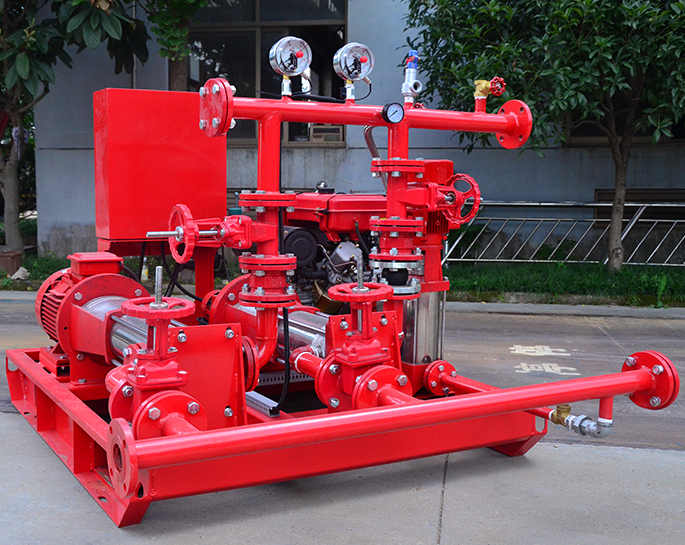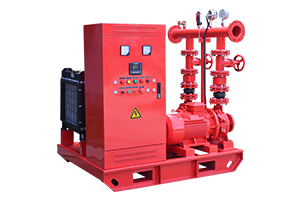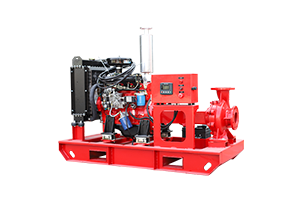What requires a fire pump?
Dec 18, 2023
Share:
A fire pump is typically required in buildings or facilities where the available water supply is not sufficient to meet the demands of the fire protection system. Fire pumps are crucial for maintaining adequate water pressure in the fire sprinkler system or standpipe system during a fire emergency. Here are some common situations that may require a fire pump:
1. **Low Water Pressure:** If the municipal water supply or the available water source lacks sufficient pressure to effectively operate fire sprinklers or other fire protection devices.
2. **High-Rise Buildings:** Tall buildings often require fire pumps to ensure water reaches the upper floors with enough pressure. Gravity alone may not provide adequate pressure in tall structures.
3. **Large Facilities:** Buildings with extensive square footage, such as warehouses, industrial plants, or large commercial complexes, may need fire pumps to distribute water effectively.
4. **Remote Locations:** Facilities located in areas where water supply is limited or distant may rely on fire pumps to enhance water pressure and delivery.
5. **Special Hazards:** Certain facilities, such as those dealing with flammable liquids or hazardous materials, may have specific fire protection requirements that necessitate the use of fire pumps.
6. **Backup for Sprinkler System:** In some cases, a fire pump may serve as a backup for a fire sprinkler system to ensure continuous water supply even if the primary source fails.
It's important to note that the specific requirements for fire pumps are often determined by local building codes, fire codes, and regulations. These codes specify when and where fire pumps are necessary and outline their design, installation, and maintenance standards.

1. **Low Water Pressure:** If the municipal water supply or the available water source lacks sufficient pressure to effectively operate fire sprinklers or other fire protection devices.
2. **High-Rise Buildings:** Tall buildings often require fire pumps to ensure water reaches the upper floors with enough pressure. Gravity alone may not provide adequate pressure in tall structures.
3. **Large Facilities:** Buildings with extensive square footage, such as warehouses, industrial plants, or large commercial complexes, may need fire pumps to distribute water effectively.
4. **Remote Locations:** Facilities located in areas where water supply is limited or distant may rely on fire pumps to enhance water pressure and delivery.
5. **Special Hazards:** Certain facilities, such as those dealing with flammable liquids or hazardous materials, may have specific fire protection requirements that necessitate the use of fire pumps.
6. **Backup for Sprinkler System:** In some cases, a fire pump may serve as a backup for a fire sprinkler system to ensure continuous water supply even if the primary source fails.
It's important to note that the specific requirements for fire pumps are often determined by local building codes, fire codes, and regulations. These codes specify when and where fire pumps are necessary and outline their design, installation, and maintenance standards.







